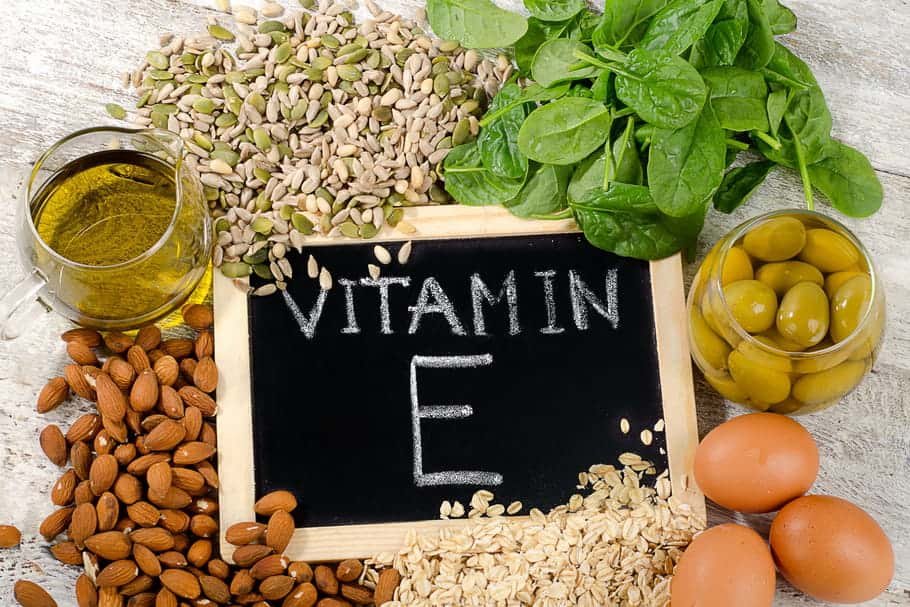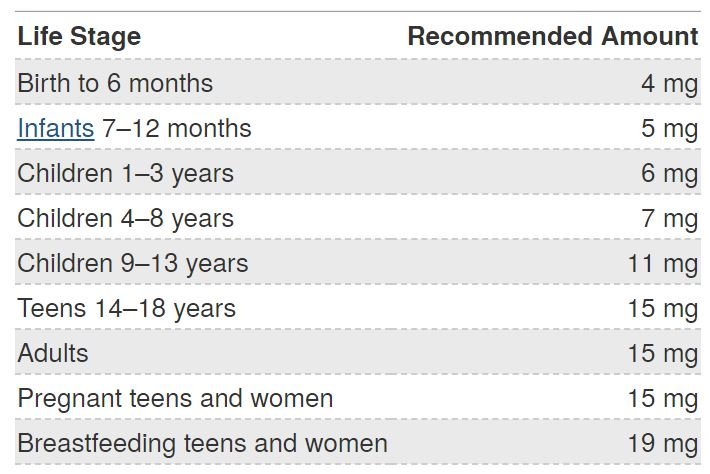turmeric Anti-Aging effects
Top #7 Turmeric: Anti-Aging effects If curcumin can really help prevent heart disease, cancer and Alzheimer’s, it would
Vitamin E has a particularly strong protective effect on the cells of the body. It plays an important role in the mechanisms of procreation and participates in the synthesis of red blood cells. Discover the role of this vitamin, its recommended nutritional intake, the risks of deficiencies or overdose

♦ Vitamin E has an anti-oxidant function.
♦ It works in synergy with other nutrients, such as vitamin C, beta-carotene and selenium.
♦ In particular, it protects the lipids that make up cell membranes, as well as LDL lipoproteins (lipoproteins are cholesterol transporters in the blood)
♦ As such, it participates in the prevention of cardiovascular diseases.
♦ It also helps in the prevention of atherosclerosis (damage to the arteries), by preventing blood platelets from clumping, by exerting an anti-inflammatory action and by stimulating the production of vasodilating substances.
♦ It may be involved in the prevention of AMD (age-related macular degeneration), cataracts and the decline of intellectual faculties with advancing age.
It seems to limit the decline in immune defenses in the elderly.
The daily needed intake depends on your age. Average daily recommended amounts are listed below in milligrams (mg).

Intense physical activity increases production of free radicals (“oxidative stress”), the recommended intake increases depending on the level of training, it can go up to 24 mg per day 1.
Vitamin E is found naturally in foods and is added to some fortified foods.
Good to know: sensitive to light, to preserve it food should be protected from light.
Deficiency is almost always linked to certain diseases in which fat is not properly digested or absorbed. Examples include Crohn’s disease, cystic fibrosis, and certain rare genetic diseases such as abetalipoproteinemia and ataxia with vitamin E deficiency (AVED). It needs some fat for the digestive system to absorb it.
Deficiency can cause nerve and muscle damage that results in loss of feeling in the arms and legs, loss of body movement control, muscle weakness, and vision problems. Another sign of deficiency is a weakened immune system.
It is naturally present in food and beverages is not harmful and does not need to be limited. In supplement form, however, in high doses it might increase the risk of bleeding (by reducing the blood’s ability to form clots after a cut or injury) and of serious bleeding in the brain (known as hemorrhagic stroke). Because of this risk, the upper limit for adults is 1,000 mg/day for supplements of either natural or synthetic vitamin E. This is equal to 1,500 IU/day for natural vitamin E supplements and 1,100 IU/day for synthetic vitamin E supplements. The upper limits for children are lower than those for adults. Some research suggests that taking vitamin E supplements even below these upper limits might cause harm. In one study, for example, men who took 400 IU (180 mg) of synthetic vitamin E each day for several years had an increased risk of prostate cancer.
Dietary supplements can interact or interfere with certain medicines that you take. Here are some examples:
Tell your doctor, pharmacist, and other healthcare providers about any dietary supplements and medicines you take. They can tell you if those dietary supplements might interact or interfere with your prescription or over-the-counter medicines
Top #7 Turmeric: Anti-Aging effects If curcumin can really help prevent heart disease, cancer and Alzheimer’s, it would
Top #6 Arthritis Patients Respond Very Well to Turmeric Supplements Share on facebook Share on twitter Share on
Top #5 Improved Antioxidant Capacity Share on facebook Share on twitter Share on pinterest Share on email Antioxidants
Top #4 Turmeric could Be Useful in Preventing and Treating Alzheimer’s Disease Share on facebook Share on twitter
Top #3 Turmeric Can Help Prevent (And Perhaps Even Treat) Cancer Share on facebook Share on twitter Share
Top #2 Turmeric Lowers Your Risk of Heart Disease Share on facebook Share on twitter Share on pinterest
Statements on this website have not been evaluated by the Food and Drug Administration. Products are not intended to diagnose, treat, cure or prevent any disease. If you are pregnant, nursing, taking medication, or have a medical condition, consult your physician before using our products.
Disclaimer: this site is not a part of the Facebook™ website or Facebook Inc. Additionally, this site is NOT endorsed by Facebook™ in any way. FACEBOOK is a trademark of FACEBOOK, Inc.

Your Privacy Is Important To Us
This website uses cookies so that we can provide you with the best user experience possible. Cookie information is stored in your browser and performs functions such as recognising you when you return to our website and helping our team to understand which sections of the website you find most interesting and useful.
Strictly Necessary Cookie should be enabled at all times so that we can save your preferences for cookie settings.
If you disable this cookie, we will not be able to save your preferences. This means that every time you visit this website you will need to enable or disable cookies again.
More information about our Cookie Policy